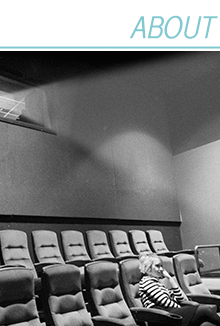
In 2009 I started a series called "Discovering Dirk Bogarde" where I documented each new-to-me Bogarde film that I watched. The last entry was in August of 2010. Did I simply slack off in the post-writing-department and consume the remainder of his filmography without chronicling my thoughts on this blog? No. Sadly, I haven't watched a single new-to-me Bogarde movie since 2010. I have no idea how that's possible, but here I am, SIX YEARS LATER, still discovering Dirk Bogarde.
I wish I could say that I loved The Damned, but I honestly still have no idea how I feel about it. It confused the HECK out of me, for one thing. I felt like a complete idiot -- I couldn't figure out who was who or how anybody was related. My ego was comforted a bit when I read some reviews afterwards, though --
"..so many characters introduced so quickly that one part of your mind will spend the rest of the movie just trying to sort them out." - The New York Times
"Characters and plots keep slipping away from us, as in a frustrating dream. We are never quite sure where we are." - Roger Ebert
I want to revisit the movie at some point (not right away though, it's an experience that nobody should subject themselves to more than twice in the span of a few months) and I think I'll grasp the plot a lot better with this handy dandy family tree that I whipped up today:

It took me hours sifting through reviews and synopses to break this down, and even then it was still puzzling. Some articles cite Konstantin as Joachim's son, while others refer to him as "an unscrupulous relative" and make reference to Sophie's ex-husband as Joachim's "only son." Who knows.
War-and-Peace-level character confusion aside, it's a... strange film. I think it's probably best known today for all of the shocking elements that made it a cult classic, including (but not limited to!) a gay Nazi orgy, pedophilia, incest, rape, child suicide, and drug abuse. Fetch my smelling salts! While I tend to prefer my movies pedophilia-free, I can understand things like that being included when they're essential to the plot. This didn't feel necessary though, it seemed like it was intended to shock, and that's it. The only truly outrageous deed that felt like it was crucial to the plot was the incest (now THERE is a sentence I never thought I'd type!) but honestly even that could have been replaced with an equally horrendous but less gag-inducing act and still been effective.

The acting was occasionally too dramatic (mostly Reinhard Kolldehof, who I've seen likened to George C. Scott but I felt like he was much more Lee J. Cobb) but overall any issues I have with the movie fall squarely on Luchino Visconti's shoulders. While a lot of the lighting is beautiful, especially a few scenes shot with an eerie green pallor reminiscent of early two-strip technicolor horror films, the camera movements remind me of home videos when my parents would hand the camera over to me or my brother. Zooming in on a face, then quickly zooming out, panning over to the side and then back up to someone else.. while I get that the intended effect is a kind of operatic level of drama (sort of like the exaggerated zoom-to-close-up of a soap opera) it just struck me as too erratic. Visconti would also be responsible for the fractured script --originally 4 hours, then cut down to 2.5. Somehow it's simultaneously too long to enjoy but not long enough to fully spell out anything that's happening in the story.
I'll give him points though, for two things -- the cast and the lush visuals (despite my annoyance at how exactly those two things were filmed.) Even Reinhard Kolldehof, in all his overacting pompous glory, was perfectly cast. Dirk Bogarde's character is a mild-mannered employee that's thrust into a number of unsavory predicaments, constantly working that meek mouse/conniving genius balance that Bogarde pulls off so well in so many films (I'm looking at you, The Servant!) And despite my opinion that most of the shocking elements were unessential, Helmut Berger indulges in pretty much all of them with a finesse that's as mesmerizing as it is unsettling.
I definitely want to give this one another shot, I just need some time to recover first...



















No comments:
Post a Comment